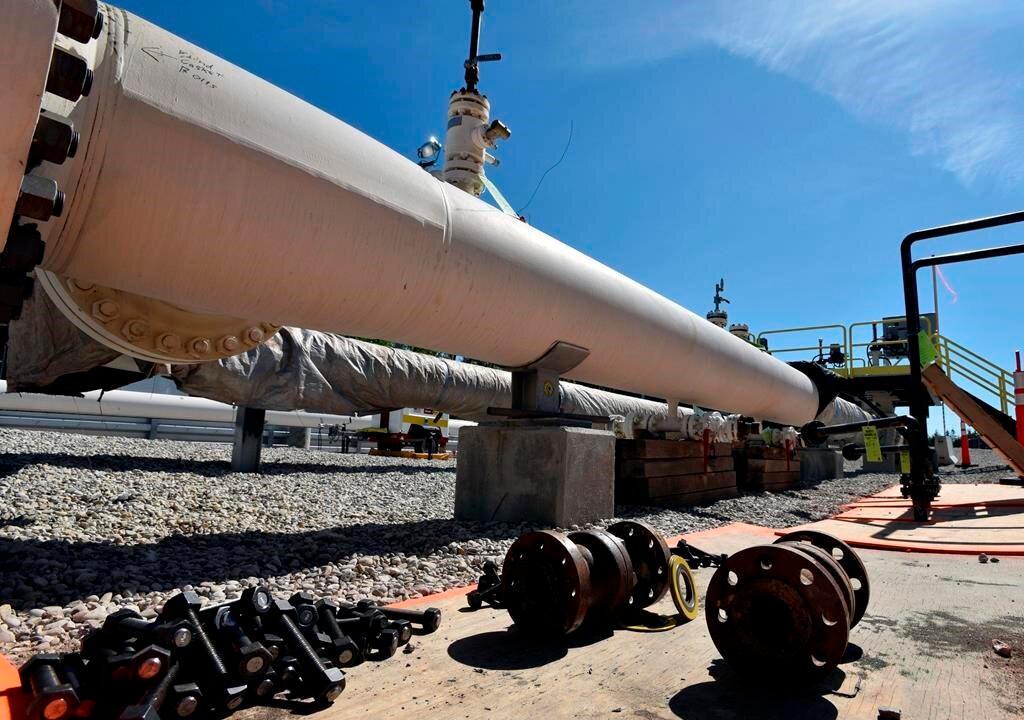OTTAWA—Canada is formally invoking a 1977 pipeline treaty with the United States in a bid to prevent Michigan from turning off the taps to Enbridge’s Line 5 pipeline.

In this June 8, 2017, file photo, fresh nuts, bolts and fittings are ready to be added to the east leg of the Enbridge Line 5 pipeline near St. Ignace, Mich. Dale G. Young/Detroit News via AP, File
|Updated:




